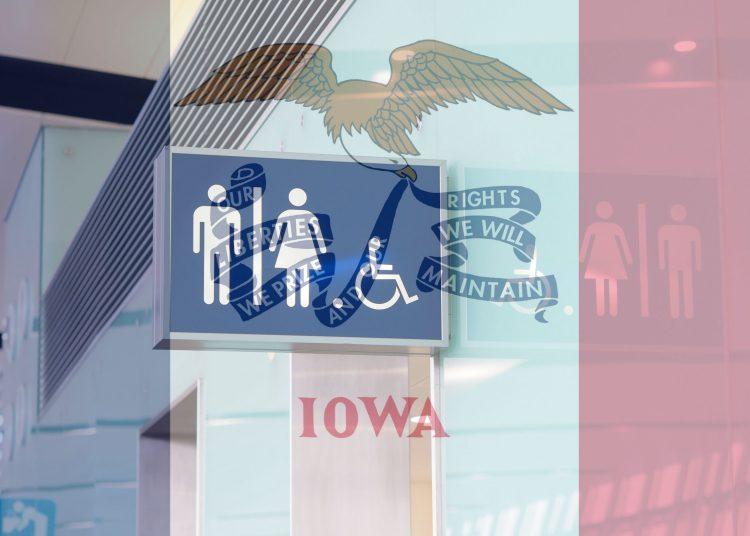DES MOINES, Iowa – Gov. Kim Reynolds introduced a bill on Thursday that would protect separate accommodations for members of the opposite sex in Iowa law.
“Women and men are not identical; they possess unique biological differences. That’s not controversial, it’s common sense. Just like we did with girls’ sports, this bill protects women’s spaces and rights afforded to us by Iowa law and the constitution. It’s unfortunate that defining a woman in code has become necessary to protect spaces where women’s health, safety, and privacy are being threatened like domestic violence shelters and rape crisis centers. The bill allows the law to recognize biological differences while forbidding unfair discrimination,” Reynolds said.
HSB 649 codifies the definition of sex as “a person’s biological sex, either male or female, at birth, unless otherwise provided by law.”
It then defines “man” and “woman” based on biological characteristics. The bill then states, “‘equal’ does not mean ‘same’ or ‘identical.”
“Separate accommodations are not inherently unequal,” the bill reads.
“Any state law, policy, or program that prohibits discrimination on the basis of sex shall be construed to forbid unfair treatment of females or males in relation to similarly situated members of the opposite sex,” the bill states.
“Notwithstanding any provision of state law to the contrary, distinctions based on sex, including but not limited to in prisons or other detention facilities, domestic violence shelters, rape crisis centers, locker rooms, restrooms, and in other contexts where health, safety, or privacy are implicated resulting in separate accommodations, are substantially related to the important government objectives of protecting the health, safety, and privacy of the persons in these contexts,” it reads.
The bill also amends Iowa law related to the issuance of a new birth certificate for those born in Iowa, driver’s license, or non-operator’s ID for those identifying as transgender. A noterized affadavit from licensed physician that the sex designation of a person has changed either by surgery or through treatment, but the new birth certificate, license, or ID must include the sex designation at the time of birth.
Read the bill below:
HSB649















